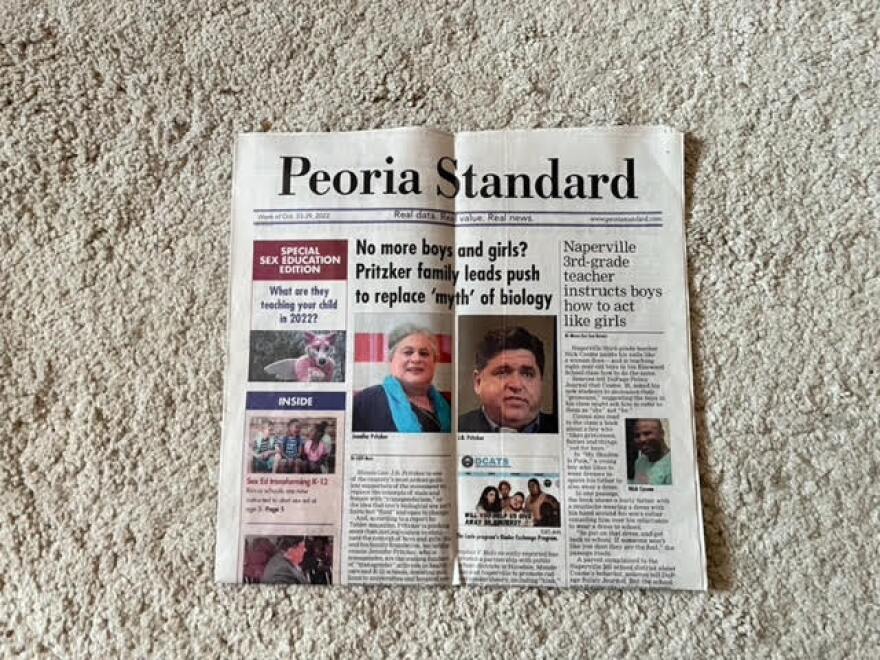Copies of the Peoria Standard recently arrived in mailboxes in and around the city, prompting questions about media literacy and political education.
The mailer is printed in a standard newspaper format and includes a front page story with several column features of the “stories” inside. But those stories are presented from a clear right-wing perspective, with no formal disclosure of their partisan lean.
Bradley University professor of communications Dr. Dakota Horn said he assumed this was a new small newspaper for the area.
“And then I read the first story, I'm like, wow, that's a bit much. And then I just kept flipping through it. And it was overwhelming to say the least,” he said.
Horn said these newspapers are a smart approach to gain readers, but the harmful nature of their content skews public perception of journalism and objectivity.
Identifying these kinds of political mailers includes utilizing media literacy, or the ability to access, analyze, and evaluate media that is consumed. Horn said these skills come from readers acknowledging their internal biases, and consuming media presenting a multitude of perspectives.
“Everyone thinks that they're very critical of what they consume, right? They're like, oh, I'm really good at this. I'm very objective, I can do all of these things. I think the key element for an instructor is building in that reflective nature,” he said. “How are you being critical? And how are you kind of checking yourself at the door when you're reading these things?”
Teaching media literacy and objective writing is a core part of the journalism curriculum at Bradley University. Journalism professor Dr. Cory Barker said it’s easy to tell people to slow down and check sources of information, but the practicality of that is more complex.
“To some extent, I think we should expect that of people. People should make that effort to be as informed as possible,” he said, “But I also think that the torrent of misinformation and disinformation that we get on a regular basis means that it is so difficult, even for the most engaged, educated, active person who desires to be as informed and knowledgeable as possible. It's still really hard to do all of that work on a regular basis.”
Barker also said internal biases can cause the coloring of certain perspectives, and acknowledging these biases would be the first step in becoming media literate.
“Having that moment of self reflection and trying to continue to push yourself to realize this is what I believe, you know, is that being confirmed by this information or challenged by this information? I think that's the first step that we don't always think about,” he said.
He said these skills can help Peoria residents to think critically about the media and content they view daily, and finding objective sources of information can help voters make fully-informed decisions at the polls on Tuesday.


